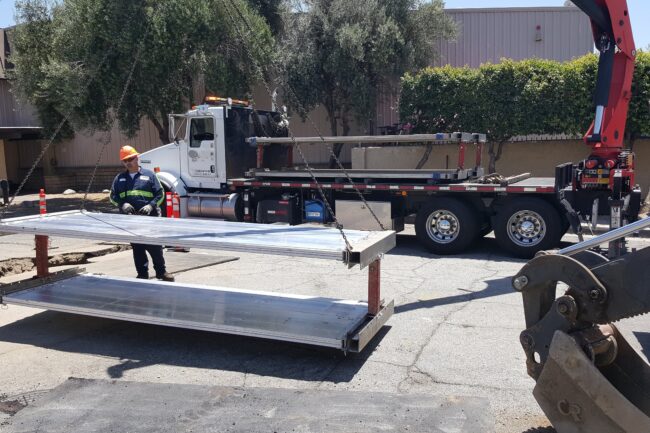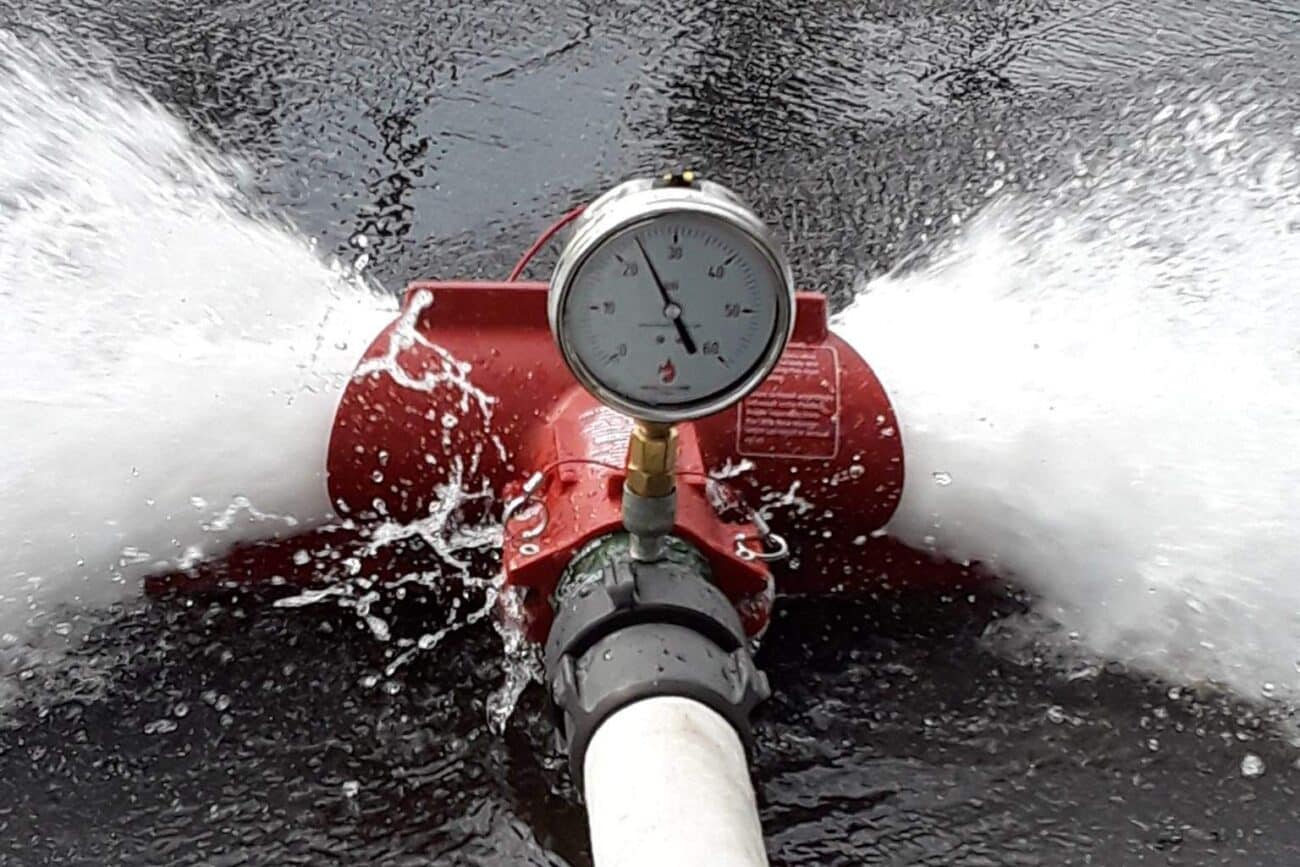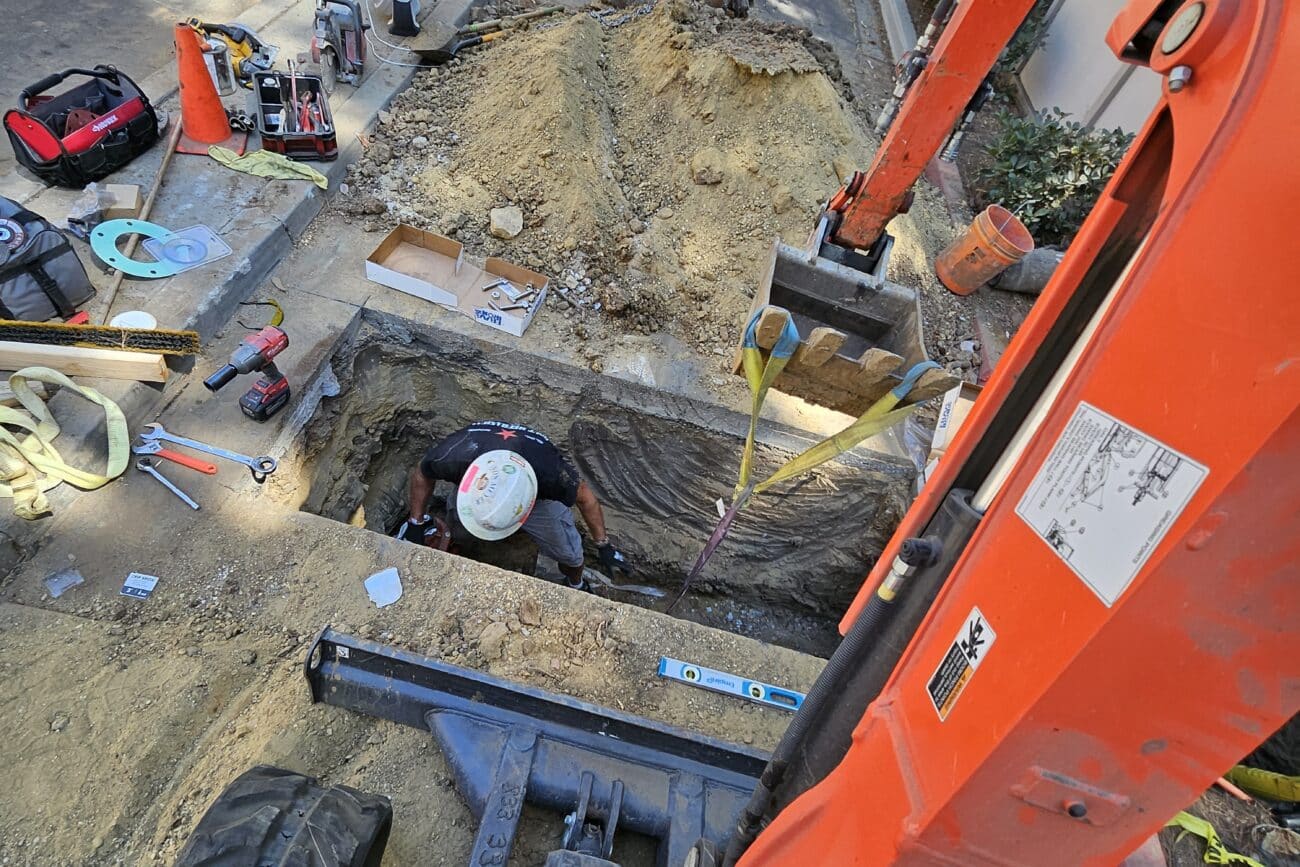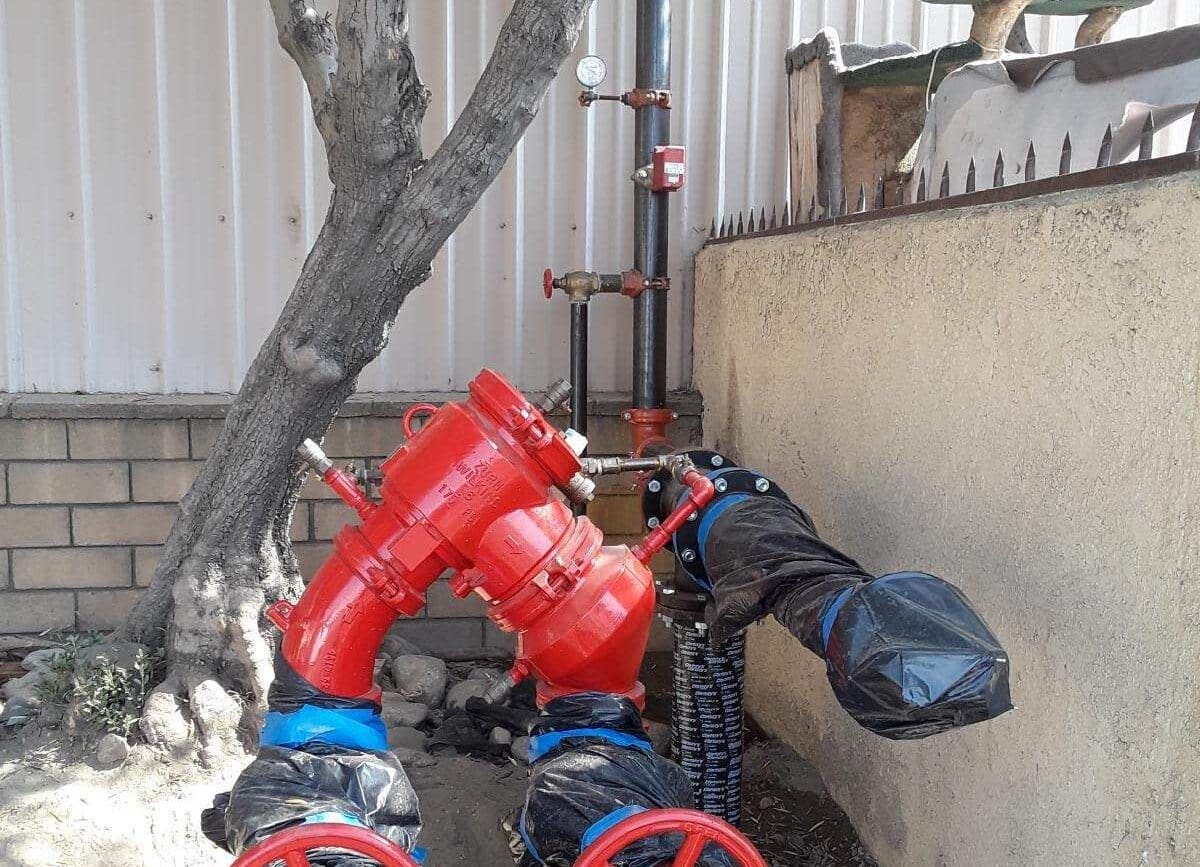Pipeline, Backflows, Fire Hydrants and Control Valves—whats not to love!
Your Waterworks Fire and Life Safety systems start and end with water delivery, a good one at that.
Bolt Mechanical understands how vital your Waterworks delivery system is in saving lives.
Although not specifically mentioned, Automatic Sprinkler systems can use various water sources like suction tanks, embankment supported tanks, wells, and ponds. These sources must be reliable and meet system demand. Proper installation of components is crucial.
Private systems must be monitored through periodic inspections, testing, and maintenance, while public systems are continuously tested and supervised.

Services
Waterworks Inspection, Testing and Maintenance.
For all of your Waterworks associated devices, we offer the following (where applicable):
- Monthly, Quarterly, Annual and Five-Year Certifications
- Inspections
- Testing
- Maintenance
*All work is performed per the NFPA 24, State adopted NFPA 25 and the Local Authority Having Jurisdiction.
Repairs
Fire and Life Safety Pipeline, Associated Parts, and Devices Won’t Last Forever.
Bolt Mechanical doesn’t just test your devices, we install and repair them! Like anything, these rugged parts will wear out. When they do, call us!
- Street Section Valves
- Control Valves
- Ductile Iron Pipe & Fittings
- C900 PVC Pipe
- AC Pipe Removal
- Pipe and Fitting Restraints
- PIV’s
- Backflows
- Backflow Setters
- Fire Hydrants
- Concrete Valve Box and Lid
- Asphalt and Concrete
- Street Striping, Arrows, ADA Scope of Work
*Work performed per the NFPA 13, 24 the State Adopted NFPA 25, and the Local Authority Having Jurisdiction.
Document Control
Bolt Mechanical provides you with the required documents for your Fire and Life Safety Waterworks projects, where applicable.
- Shop Drawings
- Plans
- As-Built Plans (Redlines)
- Safety Data Sheets (SDS)
- Material Cut Sheet Submittals
- Schedule of Values
- More!
Access to your files on our cloud server at anytime, anywhere will keep your records straight and up-to-date whenever you need them.
Call Anytime!
Learn more about document Control
Waterworks Tech Tip
What is it, how does it work?
Fire Pipeline Waterworks
1.1.1 This standard shall cover the minimum requirements
for the installation of private fire service mains and their appurtenances,
which include supplying the following:
(1) Automatic sprinkler systems
(2) Open sprinkler systems
(3) Water spray fixed systems
(4) Foam systems
(5) Private hydrants
(6) Monitor nozzles or standpipe systems with reference to
water supplies
(7) Hose houses
intended to carry water for fire service and other uses.
(1) Mains under the control of a water utility
(2) Mains providing fire protection and/or domestic water
that are privately owned but are operated as a water utility
serving sprinkler systems designed and installed in accordance
with NFPA 13R that are less than 4 in. (100 mm) in nominal
diameter.
serving sprinkler systems designed and installed in accordance
with NFPA 13D.
a reasonable degree of protection for life and property from
fire through installation requirements for private fire service
main systems based on sound engineering principles, test
data, and field experience.
That’s the Standard; here’s a little context:
Here are some things to know about fire pipeline waterworks:
-
Installation
Fireline systems can be installed underground or overhead. Underground firelines are often used in commercial, industrial, and hospital facilities, as well as in areas where water-based protection is required.
-
Components
Fireline systems include fire hydrants, fire sprinklers, automatic sprinkler risers, stand pipes, and more.
-
Maintenance
Fireline systems must be fully operational and free of defects. Regular maintenance includes flushing, backfilling, and compacting.
-
Fire service lines
The portion of the water line that supplies water to the fire sprinkler or hydrant is called the fire service line.
-
Backflow prevention
Fire protection systems should be protected with a double-check valve assembly.
-
Pressure surges
Pressure surges can occur in any water distribution system, and can cause rubber seals at pipe joints to become a point of contamination.





